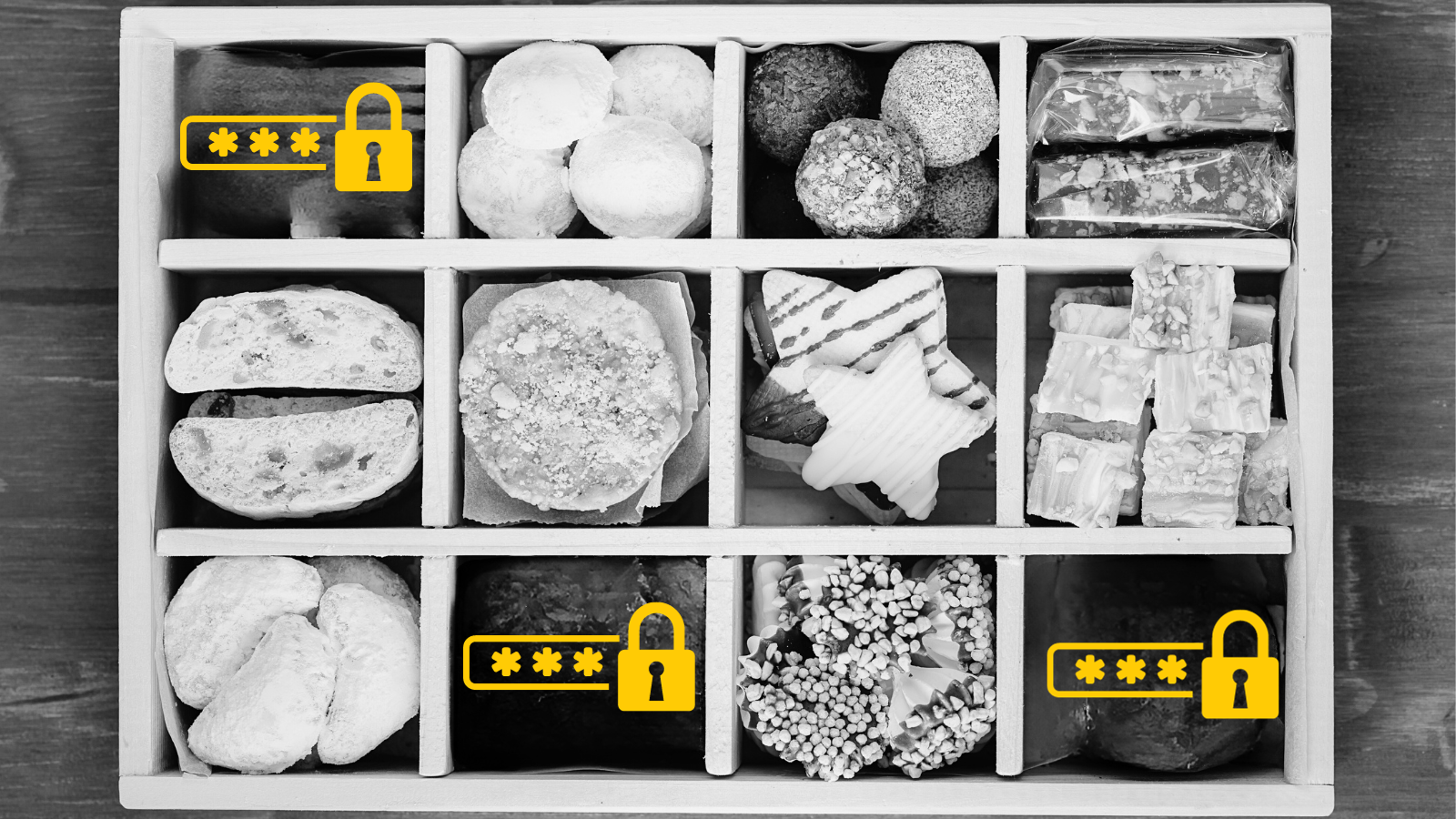Embracing VPNs within Your Home Network Space
Ever felt that unnerving sensation of someone peeking over your digital shoulder while you're deeply immersed in binge-watching your favorite show or...
It's time. The holidays are upon us, a time of joy, togetherness, and celebration. But in recent years, our festivities have taken on a digital twist. The digitalization of holiday shopping, virtual gatherings, and remote work has opened up new avenues for serious cyber attacks and threats.
As we don our festive sweaters and sip on warm cocoa, it's crucial to be mindful of the less joyful side of the season: heightened cyber threats. Let's check out the world of cyber holiday safety and cybersecurity, exploring essential tips and practices to ensure your online experience remains merry and bright.
With the rise of social engineering tactics, the allure of seasonal scams, the joys and potential risks of online gaming, the convenience of secure online shopping, and the threat actors' growing army of IoT devices and computers, there's much to discuss. This year, let's not only hang tinsel but also have a strong cyber defense to ensure we enjoy the festive season without falling prey to cyber grinches.

The holiday season is prime time for social engineering tactics, the digital equivalent of a wolf in sheep's clothing. These tactics prey on human emotions and exploit our goodwill to deceive and manipulate. Cybercriminals use various psychological tricks to ensnare their victims. As we delve into the holiday spirit, they're crafting phishing campaigns and scams to tug at our heartstrings and purse strings.
Cybercriminals tap into the festive emotions of joy, kindness, and the desire to give. They may pose as charities or government agencies seeking donations for the less fortunate or as lost souls in need of personal or financial information assistance. Some may even play the role of Santa, promising fabulous gifts for a small fee.
Beware of emails claiming to be from charitable organizations you've never heard of, or messages telling the woeful tale of a distant relative in urgent need of financial support. Watch out for unsolicited offers of money and gift exchanges, especially those that seem too good to be true.
To outsmart cyber grinches, always verify the legitimacy of an offer or request. Check the credibility of charities before donating, and resist the urge to click on flashy but suspicious links in your inbox. It's best to initiate contact with known charities or individuals rather than respond to unsolicited messages.
According to the FBI's Internet Crime Complaint Center (IC3), online shopping scams, non-delivery of merchandise payments, and phishing scams topped the list of cybercrimes during the 2022–2023 holiday season, causing financial losses in the millions. It's not a stretch to think this year will be any different.
The holiday season also marks the high season for scams in the digital realm. Cybercriminals cunningly employ scams across social media, messaging apps, financial institutions, and online retail platforms, luring unsuspecting victims into their deceptive web. As we celebrate the festive spirit, these grifters are out to exploit our trust, and a single click or shared piece of personal or financial information can set off a chain of malicious consequences.
Scammers parade as beloved brands, offering unbeatable deals and seasonal discounts. Their weapon of choice? Fake social media pages, crafted to look just like the real deal. These pages post enticing ads and run phony contests, creating an illusion of credibility. But behind the scenes, they're harvesting your data.
Unsuspected messages, particularly those with a holiday cheer twist, are another hunting ground for these digital tricksters. Beware of links in messages from unknown senders. Clicking on such links can lead to a malware download, compromising your device or computer's security. Additionally, never share personal information, like your home address, phone number, or credit card details, through these channels.
In the retail arena, 'too good to be true' deals sites are a classic trick. Scammers design websites that appear authentic and legitimate sources but are, in reality, traps for the unwary. They can steal your payment information, leave you empty-handed, and potentially damage your device with malware.
The statistics reinforce the significance of this caution. During the holiday season, email and web-based scams skyrocketed by nearly 25%, according to data breaches by the Federal Trade Commission (FTC). This elevated scam activity could compromise not only your holiday season but also your digital life.

For many, the holiday season is a time to immerse themselves in digital gaming universes. Whether it's teaming up with friends or embarking on solo adventures, the virtual realm beckons. However, it's not all fun and games; cyber threats are ever-present. Here's how to ensure that your gaming stays safe and secure.
Before you embark on your gaming journey, it's essential to have a security strategy in place. This includes being mindful of the personal information you share online. Your username and password should never contain sensitive personal details such as your real name, birthdate, or address. Cybercriminals often use these bits of sensitive information to their advantage.
Two-factor authentication (2FA) and multi-factor authentication (MFA) are like impenetrable shields in the gaming world. Enable these security features whenever possible. They ensure that even if your login or payment details are compromised, unauthorized access remains locked out.
In the world of gaming, some share more data than they should. Be cautious about how much personal information you divulge within the gaming community. Review your privacy settings and make sure that you're only sharing what you're comfortable with. It's a way to keep control of your digital avatar both in the game and in real life.
Gaming should be all about fun, and these precautions don't hinder the experience; they enhance it. By treating your online gaming world with the very same level of care as the real one, you ensure that you stay safe and enjoy the holidays to the fullest.
'Tis the season for online shopping. The convenience of purchasing gifts from the comfort of your home is tempting. Yet, the digital shopping aisles can be fraught with dangers. Stay merry and secure with these tips:
When shopping online, opt to use credit cards instead of debit cards or pay with direct bank transfers. Credit cards often provide an added layer of protection against fraudulent transactions. The liability of financial institutions for unauthorized charges is limited, helping you avoid financial surprises during the holidays.
Just as you scrutinize your shopping list, make a habit of scrutinizing your bank and credit or debit card statements. Regularly checking your statements for unusual or unfamiliar charges can be a lifeline. If you spot anything suspicious, report it to your bank, credit card companies, or provider promptly. Timely action can save you both money and headaches.
Cybercriminals might be on a shopping spree of their own, looking for unwary targets. Be a savvy online shopper and protect yourself this holiday season.
Smart homes are becoming more prevalent, especially during the holidays. Whether it's a new thermostat, security camera, or voice-activated assistant, these Internet of Things (IoT) devices can be wonderful additions to your home. But before you unwrap your shiny new gadgets, consider these cyber safety tips:
IoT devices are often overlooked in terms of software updates. Just like your computer or smartphone, they need regular security updates to protect against vulnerabilities. Check if your IoT devices can receive automatic software updates, and if they can, enable this feature. For those that don't, make it a habit to visit the manufacturer's website and manually install updates.
Many IoT and mobile devices also come with default usernames and passwords that are easy for cybercriminals to guess. Always change these defaults to unique, strong passwords. Better yet, use long passphrases. For example, "J0yfu1H0l1day5!" is a strong passphrase.
If your IoT devices or associated apps offer 2FA, enable it. This adds an extra layer of security by requiring a secondary code to access your device or connect your account. Even if a cybercriminal gets your password, they won't be able to access your device without the second authentication step.
The holidays should be about warmth, joy, and family, not dealing with a hacked smart doorbell or thermostat. Protect your digital home as well as your physical one.

As we navigate the online waters of holiday shopping, perfect gift-giving, festive e-cards, and virtual gatherings, it's crucial to remember that while the holidays bring joy and cheer, they also attract cyber grinches. The good news is that, with a little awareness and a dose of caution, we can keep our digital celebrations merry and bright.
In a rapidly evolving digital landscape where even the cheeriest of seasons aren't immune to cyber threats, staying vigilant is our best defense. Beware of social engineering schemes that exploit the spirit of the holidays; be cautious about scams lurking in messages and tempting advertisements; and secure your online gaming escapades with a few extra steps.
When it comes to online shopping, embrace the convenience but also the responsibility. Use credit cards for added protection, keep an eagle eye on your various bank account statements, pay more, and be wary of deals that seem too good to be true.
And for those shiny IoT devices and gifts that bring smartness to your home, remember that a secure home is a happy home. Update regularly, change default passwords to strong passphrases, and enable two-factor authentication wherever possible.
Don't forget, our Cybermaniacs are here to support you in navigating the digital landscape, enhancing your network security, operating systems, and culture, and raising awareness about cyber risks. So, feel free to reach out for more information or assistance.
Wishing you and your readers a cyber-secure and joyful holiday season!

Ever felt that unnerving sensation of someone peeking over your digital shoulder while you're deeply immersed in binge-watching your favorite show or...
6 min read

From advanced malware to modern phishing schemes, cybercriminals are continually developing new methods to exploit human vulnerabilities. Thankfully,...
4 min read

Psst: CISOs and experts, this is one of our beginner-oriented articles! If you're looking for more advanced material, we recommend a dive into the...
3 min read
Subscribe to our newsletters for the latest news and insights.
Stay updated with best practices to enhance your workforce.
Get the latest on strategic risk for Executives and Managers.
